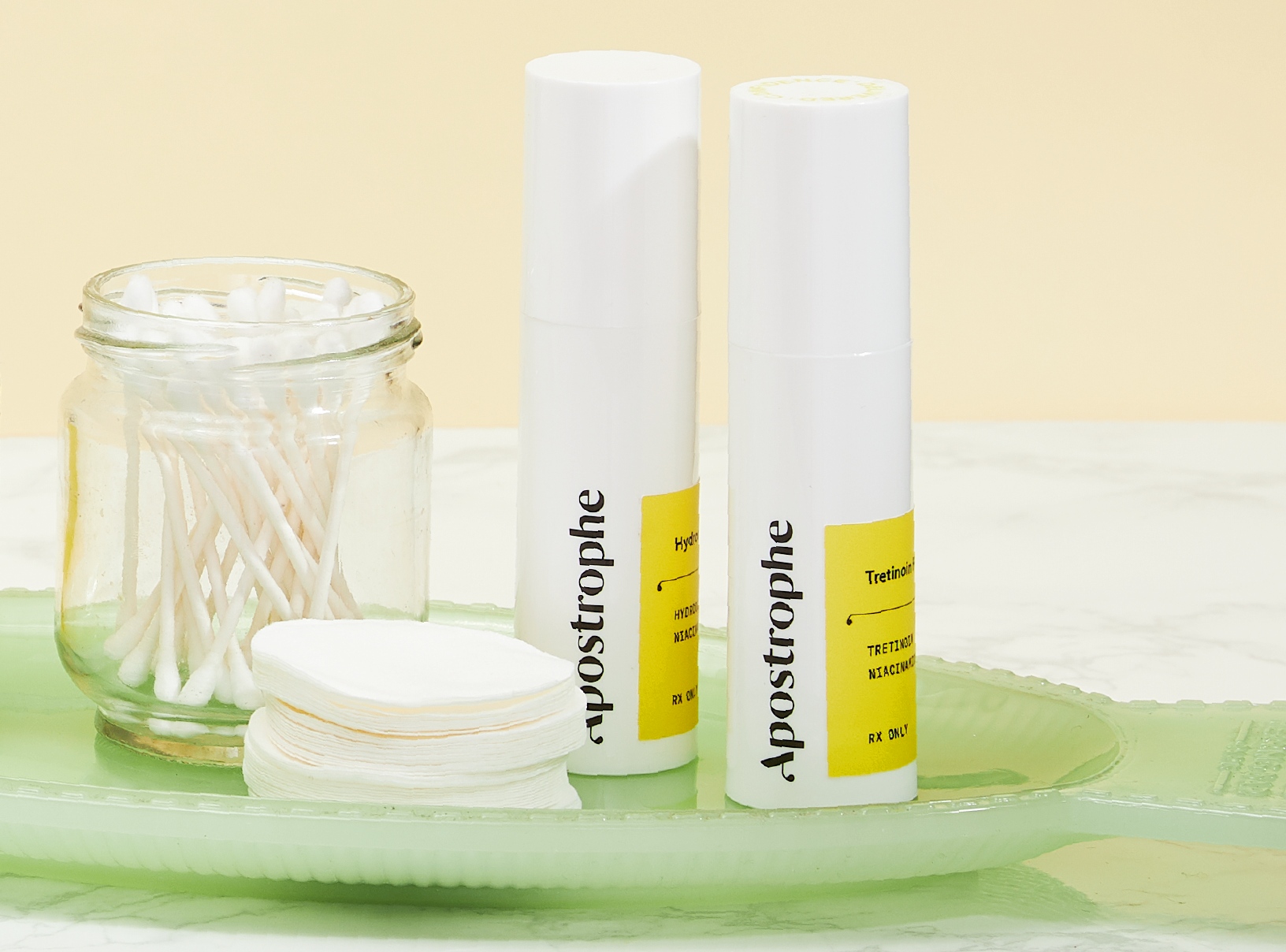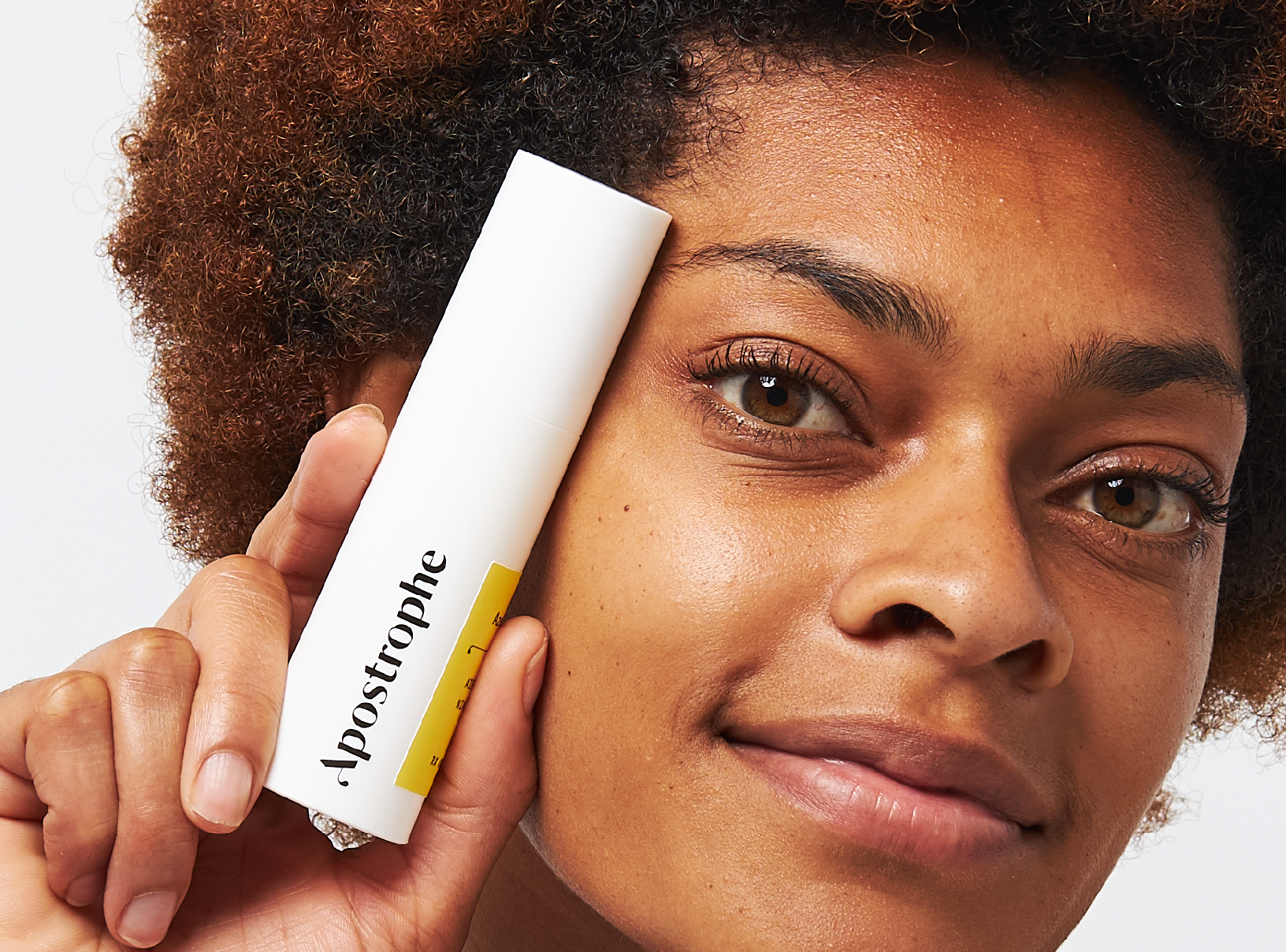Education
The 3 Big Ways Menopause Can Affect Your Skin


SHARE
Education
The 3 Big Ways Menopause Can Affect Your Skin
Medically reviewed by Aimee Paik, MD
Written by Apostrophe Team
Last updated 8/1/2024
Our skin changes throughout our lifetimes, as we grow from children, to teenagers, to adults. As we continue to age, our skin ages with us. We’ve all experienced the dramatic hormonal changes that take place during puberty, but our hormones continue to fluctuate throughout our lives. One of the most dramatic physical changes people experience may not occur until after the age of 50: menopause.
What is menopause?
Medically, menopause officially begins one year after your last period. This may occur as early as your 30s (premature menopause), into your 60s, or at any time in between (the average age of onset is 51 years old). There can be some unpleasant signs and symptoms menopause is approaching, including irregular periods, hot flashes, mood changes, and thinning hair and dry skin. These symptoms are caused by a natural decline in reproductive hormones – namely, estrogen and progesterone. Eventually, your ovaries will stop producing eggs and you will no longer be able to become pregnant.
What skin concerns can be triggered by menopause?
The big hormonal changes brought on by menopause can be reflected in your skin. Your skin may become thinner, less elastic, and more dry. Adding a rich moisturizer into your routine can help combat these changes. A prescription strength retinoid like Apostrophe Tretinoin Formula will also help reduce fine lines and wrinkles as you age (and for younger folks out there – it’s never too early to start!). Just remember to always apply sunscreen!
Acne… again??
We have some disappointing news for those of us who have experienced teenage acne and adult acne. Many people also experience menopausal acne brought on by hormonal fluctuations (a drop in estrogen and an increase in testosterone). This kind of acne can usually be addressed with the same treatments used in other kinds of hormonal acne: prescription retinoids, topical or oral antibiotics, and anti-androgen treatments like spironolactone. Menopause can affect everyone differently, so be sure to consult with your dermatology provider to get the best treatment for your skin!
You don’t need to be pregnant to get the “pregnancy mask”
Melasma is another skin concern that can be brought on by hormonal changes during menopause. When it occurs during pregnancy, people often refer to it as the “pregnancy mask,” due to the mask-like hyperpigmentation that can occur across the cheeks and forehead. Melasma affects darker skin types more often than lighter ones and can be exacerbated by sun exposure. Staying out of the sun and using a physical sunscreen with an SPF of at least 30 every day will help keep melasma from progressing. Hydroquinone cream is a skin-lightening agent that can also be used to treat melasma. It works by decreasing melanin production (the stuff that gives your skin its color) and increasing melanin breakdown in hyperpigmented areas. Hydroquinone is available in over-the-counter products, but it can be prescribed in a more concentrated formula by a dermatology provider.

HYPERPIGMENTATION TREATMENT
Target dark spots and hyperpigmentation with customized prescription treatment.
Any big life change can be a tough adjustment, but with the right tools, menopause’s effects on your skin will be a blip on your radar. Remember: you can always connect with a dermatology team through Apostrophe to ask questions and get treatment.
What topics do you want us to cover on our blog? Let us know on Twitter @hi_apostrophe.
Like what you just read? Sign up for our email list to get the scoop on skincare science delivered straight to your inbox.

Deep Dives
A dermatologist shares his thoughts on the recent studies about benzoyl peroxide and benzene.
Read More
Education
What is milia?
What is milia? Today, we’re jumping into one type of bump that you may have heard about most commonly in infants — milia.
Read More
Education
Best moisturizer for acne-prone skin
If you have combination acne-prone skin, figuring out which moisturizer is best for your skin might be tough. In this guide, we break down the best moisturizer for combination, acne-prone skin.
Read More